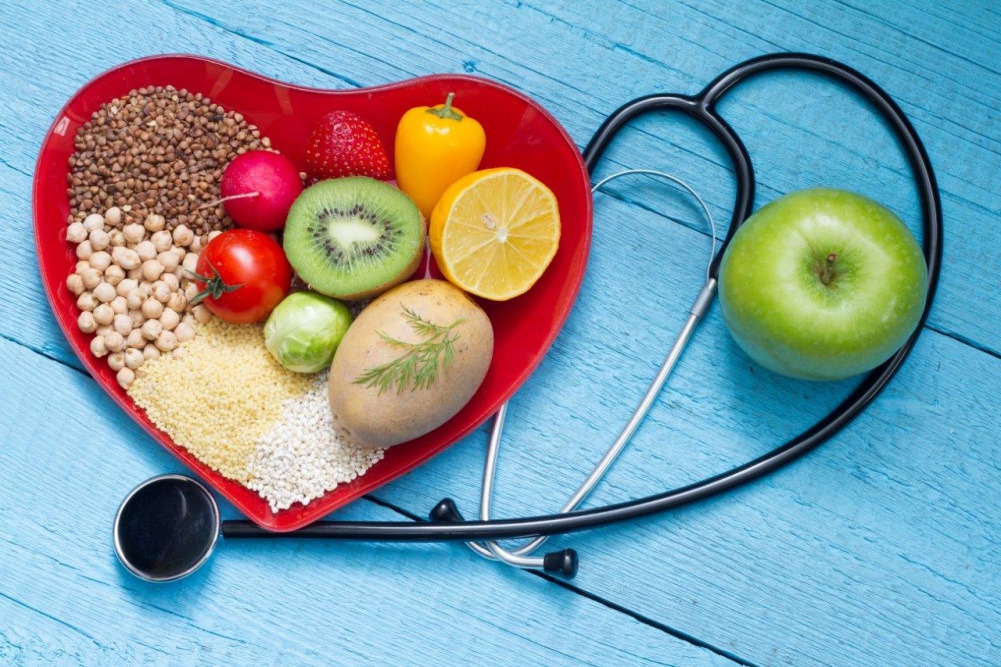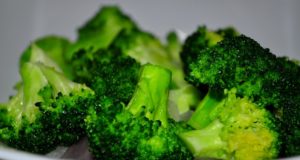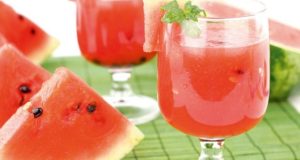DASH diet it’s good for your heart health because it can lower blood pressure and cholesterol levels. Even if you do not have high blood pressure, with this type of diet you can lose weight.
Avoid salt
Excess salt retains fluids in the body which puts extra strain on the heart. Highest daily recommendation is between 1,500 and 2,300 grams of salt, depending upon the health, age, race and gender.
Salt intake can be reduced with the help of these tricks:
- Choose foods with low or no sodium.
- Avoid smoked and canned foods.
- Avoid processed foods that are high in sodium.
Consume whole grains
Consume whole grains such as whole wheat bread and pasta, brown rice, oatmeal and popcorn. Fiber helps lower cholesterol and provide a feeling of satiety. In the diet to 2000 calories, eat 6 to 8 times a day. One portion means a slice of bread, 30 grams of cereal or ½ cup cooked pasta or rice.
Fill a plate of vegetables
Vegetables contain fiber, vitamins and minerals. It does not contain a lot of calories and saturated fat. Vegetables should be eaten 4 to 5 times a day (½ cup cooked or raw vegetables, 1 cup of raw leafy vegetables or 1/2 cup vegetable juice). If you’re not a fan of vegetables, you can eat them as a side dish or a main course salad.
Do not forget the fruit
Fruit is also full of fiber and vitamins. In addition, abundant in potassium and magnesium, which reduces blood pressure. Consume the fruit 4 to 5 times per day. Mean servings of fruit a high apple or an orange, or 1/2 cup of frozen, fresh or canned fruit. Half a cup of fruit juice or ¼ cup of dried fruit is also considered one meal. Add fruit to breakfast cereal or eat as a dessert.
Dairy products
Dairy products with low fat are a good source of calcium and protein that help lower blood pressure. Dairy products can be taken up to 3 times a day. Choose skim milk or one that has a 1% fat. One serving of dairy products includes 1 cup of yogurt or milk, or 45 g of cheese.
Fish and meat
Do not avoid meat, but keep an eye on your fat intake. Meat is a good source of protein and magnesium. Fish and meat can consume up to 3 times a day. One portion means 30 g of meat or one egg. Limit intake of egg yolks to 4 pieces per week.
Nuts and legumes
Nuts, legumes and seeds are rich in magnesium, protein and fiber. Walnuts are full of omega-3 fatty acids may reduce the risk of heart disease. Consume to 5 servings of these foods each week. This means 1/3 cup walnuts, 2 tablespoons of seeds, 1/2 cup cooked beans or peas. Seeds and nuts can be consumed as a snack or add them to a salad or soup.
Reduce intake of fats and oils
Too much grease can cause high cholesterol, blood pressure and lead to heart disease. Fats may take 2 to 3 times daily as 1 teaspoon of oil or butter. When it comes to cooking instead of butter prefer to use vegetable oils such as olive or canola.
Limit your intake of sweets
You do not have to completely cut out all sweets, but limit your intake to a maximum of 5 servings per week. One serving is 1 tablespoon of sugar or jam. Choose desserts that contain low fat content, such as candies, jellies, maple syrup or frozen yogurt.
Potassium intake
Potassium is another important component of the DASH diet. By entering this mineral you can lower your blood pressure. It is best to enter it through foods rather than supplements. The body’s daily need 4700 mg of potassium, but you can enter through these foods:
- potatoes: 926 mg
- sweet potatoes: 540 mg
- banana: 420 mg
- avocado (1/2): 345 mg
- cooked spinach (1/2 cup): 290 mg.
Start with DASH diet
DASH is not difficult to follow, but you have to make some changes. At the beginning of write what you eat during the day and see what it consists of your menu. Then start making changes. Limit your intake to 2000 calories a day. Calorie intake can vary, depending on the material and physical activity. For further advice, consult a doctor.
 Healthy Life and Beauty Health and Beatuy information and advice you can trust.
Healthy Life and Beauty Health and Beatuy information and advice you can trust.




